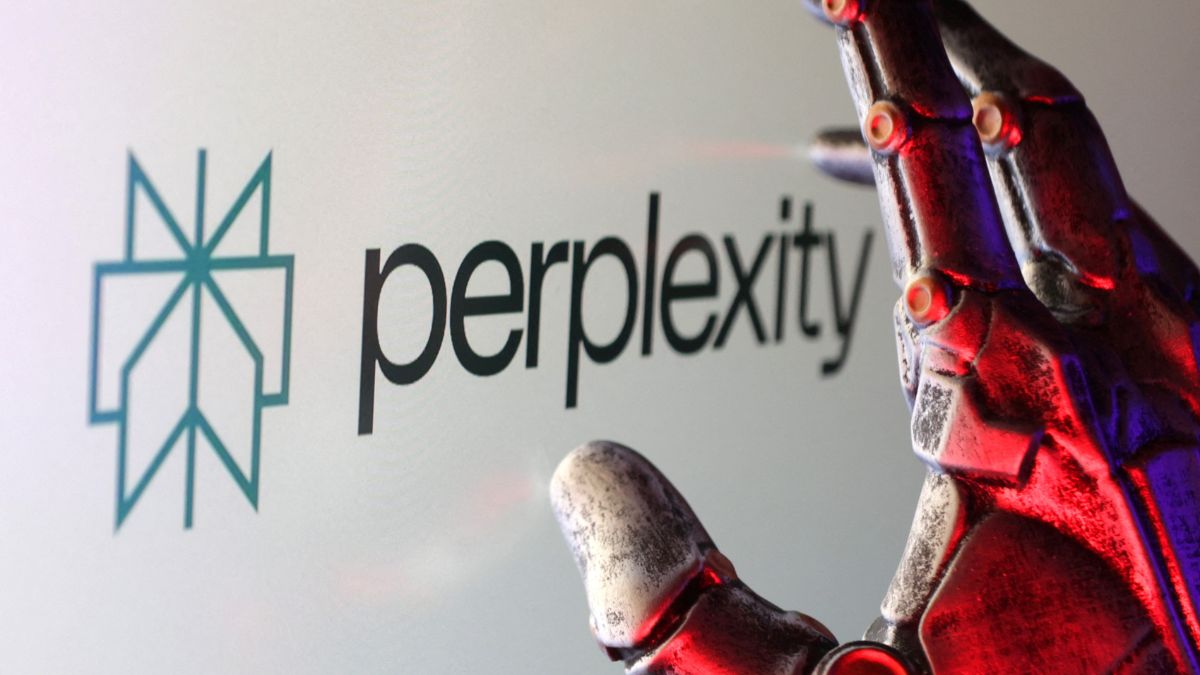Artificial intelligence startup Perplexity has surprised the tech industry with a formal $34.5 billion all-cash offer to acquire Google’s Chrome browser — a product that dominates the web browsing market with billions of users worldwide.
The bid, made public on Tuesday, comes despite Chrome not being officially for sale and Perplexity’s own valuation being far below the amount it is offering.
The approach to Google’s parent company Alphabet arrives during a pivotal moment in the US government’s antitrust battle against the search giant.
With regulators pressing for remedies after a federal judge ruled last year that Google maintained an unlawful monopoly in search, one possible outcome under consideration is the forced sale of Chrome.
Perplexity’s proposal positions the startup as a ready and willing buyer if such a ruling is made.
A startup challenging industry giants
Founded in 2022, San Francisco-based Perplexity is a relatively new player in the technology sector but has gained rapid attention for its AI-powered search tools designed to compete directly with Google’s core product.
The company is led by co-founder and CEO Aravind Srinivas, a former Google intern, and is backed by major investors including Nvidia, SoftBank, and Amazon founder Jeff Bezos.
Perplexity’s rise has been swift. Its app has become increasingly popular on Apple’s App Store and Google Play, amassing 30 million active users and handling more than 780 million monthly queries.
The platform offers direct AI-generated answers to user questions, positioning itself as a streamlined alternative to traditional search engines.
The company has a history of bold acquisition proposals. Earlier this year, it made an offer to acquire TikTok’s US operations in a bid to address Washington’s national security concerns over the video-sharing platform’s Chinese ownership.
Editor’s Picks
That proposal, estimated at $50 billion, did not progress, but it established Perplexity’s willingness to engage in high-profile corporate manoeuvres.
The $34.5 billion proposal
Perplexity’s latest bid was sent in a letter to Alphabet CEO Sundar Pichai. In the correspondence, Srinivas described the offer as “designed to satisfy an antitrust remedy in highest public interest by placing Chrome with a capable, independent operator.”
The startup stated that several major venture capital funds have agreed to finance the purchase in full, though it declined to identify them.
The development was first reported by the Wall Street Journal.
The proposal is remarkable for its scale. Perplexity was last valued at approximately $18 billion, making the Chrome offer nearly twice its own worth.
The company has raised around $1 billion in total funding to date, but claims that it has commitments from outside investors to cover the entire purchase price in cash.
The plan includes a pledge to:
-
Keep Chromium — the open-source codebase that underpins Chrome and other browsers such as Microsoft Edge — freely available to developers.
-
Maintain Google as the default search engine in Chrome, while allowing users to change settings.
-
Invest $3 billion into Chrome and Chromium over the next two years.
-
Retain a substantial portion of Chrome’s workforce.
-
Avoid making undisclosed or “stealth” modifications to the browser that could affect users without their knowledge.
Perplexity has pointed out that the deal would not involve any equity component, aiming to eliminate potential antitrust concerns arising from shared ownership.
The company has also said that its acquisition approach is aligned with preserving user choice and supporting competition in the browser market.
Why is Chrome important
Google Chrome is the most widely used internet browser globally, with more than 3 billion users and an estimated 60 per cent share of the worldwide browser market. On desktops and mobile devices, it serves as a primary gateway to the internet for both casual and professional users.
The browser’s influence extends far beyond simply enabling web access. Chrome is tightly integrated with Google Search, which commands close to 90 per cent of the global search engine market.
This integration provides Google with a direct channel to search traffic and valuable user behaviour data — both critical for the company’s advertising revenue and AI development efforts.
In the current landscape, where AI-driven search is becoming increasingly central, browsers have regained importance as platforms for delivering information, collecting user data, and hosting AI-powered tools.
Perplexity, which recently launched its own AI-native browser called Comet, sees Chrome’s massive reach as an opportunity to accelerate its challenge to Google and other competitors such as OpenAI, which is also reportedly interested in building an AI-enabled browser.
Connection to the Google antitrust case
Perplexity’s offer arrives amid ongoing legal proceedings that could reshape the search and browser markets in the United States.
Last year, US District Judge Amit Mehta ruled that Google violated antitrust laws by maintaining its dominance through a network of exclusive agreements with device manufacturers, browser developers, and carriers — arrangements that directed users to Google Search by default.
The case, filed by the US Department of Justice in 2020, is now in its remedies phase.
The DOJ has proposed measures that include requiring Google to sell Chrome, licensing its search data to competitors, and limiting its ability to pay for default search positions on devices and browsers.
Mehta is expected to issue his decision on remedies soon. His ruling could range from relatively narrow adjustments to Google’s business agreements, to more drastic structural changes such as divesting Chrome.
In court earlier this year, Mehta questioned whether selling Chrome might be “a little cleaner and a little bit more elegant” than other remedies aimed at restoring competition.
Google has opposed the idea of a forced sale. In testimony, Pichai argued that such a move would damage the company’s operations, deter investment in new technologies, and potentially compromise user security.
The company has said it intends to appeal any unfavourable remedy ruling, potentially extending the legal process for years.
How much Google Chrome is worth
Estimating Chrome’s market value is challenging, with analyst assessments ranging from $20 billion to as high as $50 billion.
Gabriel Weinberg, CEO of rival search engine DuckDuckGo, has suggested that the browser could command at least $50 billion if Google were compelled to sell, reported Reuters.
Perplexity’s $34.5 billion bid sits in the lower-middle of that range, though it is still a substantial premium compared to some valuations.
While Alphabet has not publicly commented on the offer, sources told the Financial Times that the company is not being taken as a serious proposition at this stage.
Should Chrome be put up for sale, industry competition for the asset would be intense.
In addition to Perplexity, OpenAI executives have expressed potential interest in acquiring the browser, and other technology companies could see strategic value in owning the platform.
How Google Chrome will help Perplexity’s AI ambitions
Earlier this year, Perplexity began rolling out Comet, its own AI-enabled web browser, to a limited number of users.
Built on the same Chromium framework that powers Chrome, Comet integrates voice and text command features, allowing users to perform tasks such as online purchases, summarising social media updates, and composing emails without manually navigating web pages.
By acquiring Chrome, Perplexity would instantly gain access to a user base numbering in the billions, vastly expanding its reach.
The company has argued that this would allow it to scale its AI offerings more effectively and compete with larger firms such as Google and OpenAI in the rapidly evolving AI search space.
Jesse Dwyer, Perplexity’s head of communications, underscored the company’s seriousness about the bid, telling the Financial Times, “This isn’t a joke. We are good at this. We know we would be good stewards of Chrome and we would challenge anybody who says they would be a better one.”
Google is simultaneously working to defend its search dominance by introducing new AI-driven features.
The company has begun deploying “Overviews” — AI-generated summaries that appear at the top of search results — as part of its strategy to maintain relevance in the face of competition from AI-first platforms.
Chrome plays a vital role in this effort, acting as a direct distribution channel for these AI enhancements. Analysts suggest that for this reason alone, Google would be reluctant to part with the browser voluntarily, regardless of the bid price.
The Perplexity bid puts into spotlight the tech race to control the key points of access to online information.
If accepted and approved, Perplexity’s acquisition plan would mark one of the largest-ever transactions involving a single internet platform.
Also Watch:
With inputs from agencies
End of Article

)

)